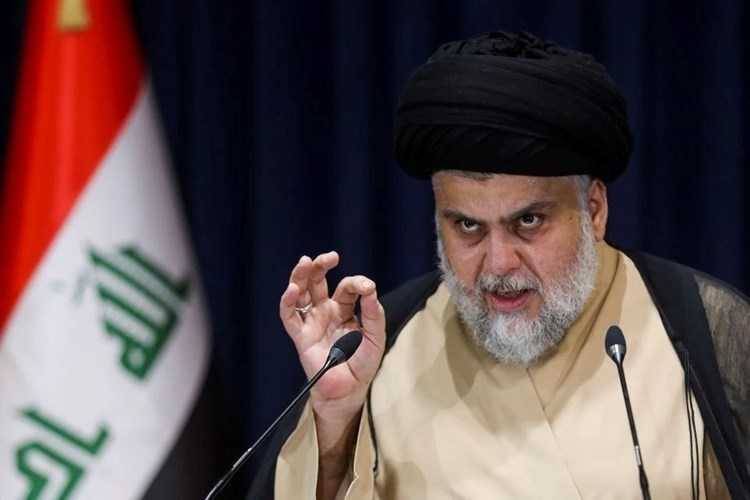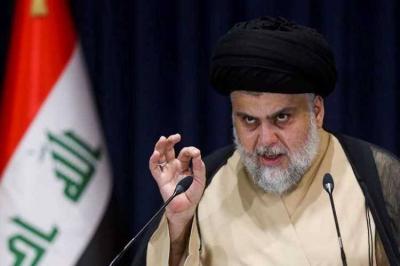The eyes of the Iraqis are today focused on the parliament, which is holding an exceptional session expected to announce replacements for the Sadrist bloc deputies who resigned over a week ago, after months of political deadlock and failure to select a president for the republic and a government. Seven months after the early parliamentary elections in October, and amid the political class's inability to form a parliamentary majority coalition, Shiite cleric Muqtada al-Sadr announced his withdrawal from the political process in the country last Wednesday, despite his bloc winning the most seats during the parliamentary elections, denying that his withdrawal was due to "Iranian threats." He accused Iran's “arms” of committing "political violations" against the judiciary in the country.
Informed sources confirm to "the central" that "Muqtada al-Sadr was compelled to resign from parliament after all attempts by the Sadrist bloc to form a government failed, due to Iranian interventions aimed at obstructing and hindering any progress in this regard. Al-Sadr took this step hoping that his withdrawal would reopen a gap in the wall of the crisis that Iran had blocked." The sources also expressed fear that this step could lead to an exploitation of the situation and seizing opportunities, which has already begun with attempts by Nuri al-Maliki to assume the position of Prime Minister, a role he has held twice before. The sources indicate that al-Sadr is concerned about al-Maliki's effort to exploit the Sadrist bloc's withdrawal from the political process, supported by Iran and pressuring for his appointment to form the government, given his reputation for corruption, embezzlement of public funds, and being repudiated by Iraqis due to his administration being associated with looting billions.
The sources highlight that Iranian-backed forces celebrated al-Sadr's withdrawal because he holds the largest parliamentary bloc. However, he was unable to form a government because he does not have an absolute majority, as the Iraqi constitution stipulates that the party holding the largest bloc is the one to form the government. Yet the Iranians did not allow him to do so, and today they are attempting to install al-Maliki in this position despite the opposition of most Iraqis.
Meanwhile, the caretaker Prime Minister Mustafa al-Kadhimi continues to hold authority, striving as much as possible to fight against the Iranian-backed forces that have plundered and are attempting to continue to pillage the state, supported by Iran. Additionally, sources confirm that al-Sadr enjoys backing from the Kurds, particularly from the President of the Kurdistan Democratic Party, Masoud Barzani, who also supports al-Kadhimi's continuation in office, as there is no alternative.
Amid these developments, there is a fear, according to the sources, of the eruption of a popular revolution in the country, given the internal and external storms hitting Iraq. Domestically, the country is staggering under the fragmentation of political forces and the ongoing terrorist attacks, while externally various Iranian, American, and Arab parties are attempting to pull it in their direction. Consequently, the tug-of-war continues in the country between Iran's allies and national Iraqi political forces that reject Iranian hegemony.
The positive aspect is that at the helm of the Iraqi government is a trusted individual, Mustafa al-Kadhimi, who remains in power despite his limited capacity to govern under caretaker status, as he faces strong Iranian influence on one hand while extending his hand to the West, Arab nations, and Gulf states, especially Saudi Arabia, to curb Iranian expansion on the other. Regardless, al-Kadhimi is participating in a summit hosted by Saudi Arabia on July 16, attended by U.S. President Joe Biden and expected to feature leaders from Bahrain, Oman, Kuwait, Qatar, and the UAE. Iraq is undergoing a difficult phase, and al-Kadhimi faces significant pressures placed on him and Iraq that prevent any progress toward forming a government and electing a president. Therefore, the post-al-Sadr phase is considered more dangerous as it threatens to ignite a new popular revolution due to the internal and external storms obstructing stability in the country, the sources conclude.




